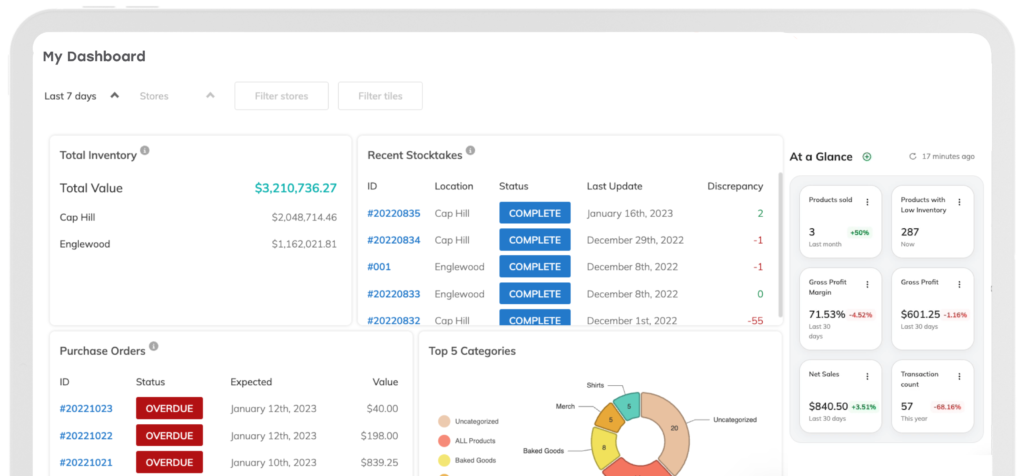
If You Want To Start A Business But Don’t Have An Idea: Here’s Where To Begin
Maybe you’re uninspired by the 9–5 grind or you’ve always dreamed of becoming a business owner, but never took the jump. If the pull toward entrepreneurship is strong but you’re not sure where to start, you’re not alone. In a recent episode of The Power Up podcast, Joe Ressler, owner of REWILD, discusses his business journey from poker player to plant retailer. His story offers insight into starting a small business when your wish to become an entrepreneur comes before the big idea.
Is It A Good Idea To Start A Small Business Without an Idea?
Starting a small business seems like a lot of work when you’re staring at the drawing board without a clear business plan. Here are some advantages to starting the process before inspiration strikes.
Make objective decisions
When you’re not tied to an idea, you look at different business opportunities more objectively. It’s easier to take a step back and evaluate every option. Approaching the decision-making process with an open mind allows you to weigh the pros and cons. You’ll also consider external factors such as market demand, competition, and the potential for growth as part of your decision.
Fill a hole in the market
Maybe there’s a certain type of product people want to buy, but no business is selling it yet. Instead of forcing an existing idea into an already crowded market, you’ll find areas with the best ROI. Tailor your business to meet those demands.

Find opportunities to stand out
When you don’t come to the table with a detailed idea and solid business plan, start by looking at the status quo of other businesses in the market. Then find ways to break it. REWILD’s owner, Joe Ressler, did just that when he ventured into the world of houseplant retailing. He focused on adding a personal touch to helping potential customers decorate their homes with plants, a service large retailers failed to provide.
How To Come Up With A Business Idea
Research businesses for sale
The goal isn’t necessarily to buy the shop, but to note which businesses are closing, investigate why they’re closing, and determine how to perform better. This approach leads to some great ideas for stepping into the market and quickly attracting customers.
When Ressler noticed a significant number of flower shops up for sale, he wanted to understand why. He looked into the financials of these businesses and found two issues. These businesses weren’t catering to a specific customer base, and they were competing with big-chain retailers. Ressler used this information to build a business idea that addressed these challenges head-on.

Ask around to understand the issues
Many new small business owners talk to everyday customers, including friends and family members. They ask about products their personal networks wish were better or those pesky problems a new product could solve. Paying attention to these responses ensures you’re starting a business that directly addresses consumers’ needs.
Research competitors and trends
Conducting a competitive analysis of businesses similar to the one you’re interested in starting helps you identify where they excel and where they fall short. Maybe they have a great idea that needs refinements or a gap in their offerings that your small business fills. In your competitive analysis, assess the trends in a particular industry and see how businesses are keeping up with them. This process allows you to refine your understanding of what customers want and consider how you’ll deliver it better than competitors.
Power Up
Follow our guide and complete a competitive analysis, step-by-step.
Start small
Testing out ideas, such as launching a pop-up shop or selling your products on an Etsy store, gives you a sense of your idea’s potential. This way, you get to explore it with minimal risk and investment, gauge interest in your products, and get valuable feedback from customers. Starting small also gives you greater flexibility to respond to market changes and refine your business model over time.

How To Determine If Your Business Idea Is Viable
Even if you don’t start with a concrete idea in mind, you’ll eventually need one to kickstart the process. It’s common to sift through several unique small business ideas before discovering the one that feels like the perfect fit. Below are some ways to determine whether you should pursue the top idea on your list or consider swapping it out for a different one.
Passion and expertise
While it’s tempting to jump straight to the dollar signs, a good idea truly captures your interest. A small business owner is no stranger to obstacles. However, a healthy passion for what you do drives your motivation and determination to overcome challenges as they arise.
You should also consider pursuing a venture in a field in which you already have some expertise. Your knowledge and experience give you a competitive edge. For example, Ressler’s appreciation for the aesthetics plants bring to homes carried his vision to create a welcoming and vibrant environment for REWILD customers.
Meets a need
Successful business ideas address potential customers’ interests or solve their pressing problems. Ask yourself, “Will my business solve the challenges people face in their daily lives? Will my products help potential customers in ways that existing products fall short?” If your answer to these questions is, “Yes!,” a winning idea is within reach.
Low startup costs
Ideas that don’t require a large amount of capital minimize your financial risk. This only makes it easier to get your business up and running. With less money tied up in startup expenses, there’s more flexibility to experiment and grow your small business over time.
Scalability
If you want your business to grow sustainably, the goal is to multiply your revenue, not the number of hours you work. As you explore your potential business structure, consider whether you’d prefer to hire employees to take over repetitive tasks or install software to automate certain processes. This way, you remove limits on productivity and efficiency and focus on developing better ways to serve your customers and outshine the competition.
Multi-channel opportunities
If you sell products online and also have a brick-and-mortar business, you’ll expand your reach and diversify your sales channels. You don’t have to open both channels as soon as you start your business. However, you should choose an idea that will work well for both so expansion is seamless when you’re ready.

The Importance Of Developing An Entrepreneur Mentality
Sets the foundation for success
Networking with other business owners, attending workshops and seminars, and effectively managing your time are key to your success as a new business owner. Making these activities a regular part of your lifestyle sets the stage for long-term growth.
In the same way it takes time to find the perfect business idea, developing an entrepreneurial mindset requires determination. However, when you embrace these challenges and commit to continuous learning and improvement, you position yourself for success. The right habits and mindset open doors to new opportunities that propel your business forward.
Leads to strategic discipline
You’ll have days where you face challenges and setbacks. Even then, you have to stay disciplined and keep moving forward. With an entrepreneurial mindset comes the ability to be a self-starter and take initiative in pursuing opportunities. This level of discipline takes you from dreaming of all the success you’ll achieve to making strides toward turning those dreams into reality.
Helps you adapt to change
Trends, markets, business operations — they all change, and they often change faster than you expect. Adopting an entrepreneurial mentality teaches you how to pivot as challenges arise without losing momentum. Nick Wendowski, the owner of Stone’s Beer & Beverage Market in Philadelphia, had to apply a solution-oriented perspective when a major construction project disrupted his operations.
After the building’s landlord wanted to demolish the unit and rebuild, Wendowski was forced to temporarily relocate this business. However, there was significantly less foot traffic around the new location. To adapt, Wendowski decided to start wholesaling. This strategic move helped him keep Stone’s afloat and led to the business bringing on more than 150 client accounts.
Power Up
Stone’s Beer & Beverage Market grew their wholesale business from 0 to 150 accounts in two years to offset the loss in business during construction. Learn how on The Power Up podcast.
Keeps you motivated
When things don’t go according to plan, an entrepreneurial mindset keeps you optimistic about the future. Instead of seeing challenges as roadblocks, you view them as opportunities for redirection to explore new paths you would have otherwise never considered. This mindset keeps you constantly thinking about how to innovate and improve.

Next Steps For Bringing Your Business Idea To Life
Partner with an industry expert
Many business owners or seasoned advisors provide practical advice, share their lessons, and help you make valuable connections. By tapping into their knowledge and networks, you gain a wealth of resources and support to more smoothly navigate your new venture.
Create a business plan
A business plan is a roadmap that outlines your goals and what you’ll need to be successful. This document typically includes:
- The mission and vision of your small business
- Market research and other details about the opportunity
- Funding plans, like acquiring a small business loan or raising money
Decide your small business structure
There are several ways to structure your business entity. If you’re launching the company yourself, you’ll likely choose between a sole proprietorship and forming a limited liability company (LLC). Each legal structure offers its own set of protections regarding your personal liability. Speak with a legal expert to determine which business structure is best.
Open a business bank account
Keep your personal finances separate from your business revenue. This ensures that business expenses are properly tracked when it comes time to file taxes. To open your business bank account, you’ll need an employer identification number (EIN), also called a tax identification number (TIN). These are issued by the IRS.
Most financial institutions offer small business checking accounts. You’ll also find funding options like business loans and business credit cards, along with other options for small businesses to manage their finances and grow their new company.

Explore funding options
You may want to explore funding options offered through federal government programs, like the U.S. Small Business Administration (SBA). These low-cost or no-cost loans are an important lifeline and make launching less taxing on your personal finances if your small business idea has higher startup costs.
Choose your target market
Say, for example, you decide to sell linen clothing. Your potential customers are environmentally conscious, appreciate sustainable fashion, and prioritize comfort and quality.
Creating a detailed profile of your target customers allows you to tailor your idea to resonate with their specific needs. With the above customer profile in mind, you focus on sourcing eco-friendly materials for your clothing line or emphasizing the durability and timeless style of your garments.
Figure out what works best
Getting an idea off the ground requires a lot of trial and error. Don’t be afraid to experiment with different approaches to your operations. Test out different marketing plans, pricing strategies, POS systems for customer payments, and approaches to customer service.
Take a close look at your back-office operations and identify any inefficiencies hindering cash flow or productivity. This way, you find the most effective way to connect with your customers and grow your business.
Diversify sales channels
Some customers enjoy the experience of browsing through physical stores and interacting with products. Others prefer the convenience of shopping from home, where they can make purchases with just a few clicks.
One option is selling your products through a combination of sales channels such as a brick-and-mortar store, an e-commerce platform, and social media marketplaces. By leveraging multiple channels to sell your products, you cater to the diverse preferences of your customer base and reach a wider audience.
Building From The Ground Up: The REWILD Story
Joe Ressler is a former poker player who decided to pursue a different career and went on to receive his MBA. However, his lack of professional experience made his job search especially challenging.
He soon stopped sending out applications and decided to hire himself. In 2018, Ressler opened REWILD. The high-end houseplant retailer has since expanded to become a brand of five locations. That includes four shops selling plants and pottery, as well as a gift shop located in the U.S. Botanic Garden.
Establishing roots in a struggling industry
When trying to determine the type of business to start, Ressler investigated shuttered businesses in the area to understand the reasons behind their closures. His research uncovered a gap in the houseplant industry. He noticed large retailers weren’t selling customers on the full beauty houseplants bring to indoor spaces.
This discovery became Ressler’s angle for taking an innovative approach to opening a houseplant business. He partnered with an industry expert and, together, they defined their target audience as people with condos and row houses.
“We try to live in the high-end version of an interior houseplant store,” Ressler said. “Our specialty is being super fast and high quality.”
In the business’s earliest days, Ressler knew he wanted to educate and introduce customers about the decorative aesthetics plants bring to a space.
“You go 10,15, 30 minutes outside of the city, [and] you…hit a big garden center. There’s a ton of inventory, and you don’t really know what you’re looking at,” he said.
Growing the business
Ressler researched customer patterns to learn more about peak seasons for houseplant sales. REWILD’s retail locations excel during the fall, spring, and winter months when residents spend much of their time indoors and want to enhance their spaces.
During the summer months, however, many residents are focusing on vacations, not decorating their homes. That’s when the gift shop sales soar. As tourists flock to the area, they want to commemorate their visit to the botanical garden. They purchase items such as branded tote bags, dish towels, and other souvenirs.
“Diversifying away from plants is definitely a gift to us in a lot of ways,” Ressler said. “We’re able to sort of offset the low demand in our retail stores with the gift shop.”
REWILD also offers an installation and maintenance program that helps keep the plants customers purchase healthy all throughout the year. This service generates recurring revenue for the business.
“If you have an apartment, if you have a restaurant, if you have a super high-end residential home, we’re happy to put together really large orders for you. We’ll deliver them, and then we’ll maintain them on a weekly basis,” Ressler said.
Branching into new areas
With the business’s basic operations in place, Ressler is now focusing on ways to keep customers coming back to REWILD.
“A lot of it is working at your business, problem-solving with customers everyday, making sure the products you buy are high-quality, that you have a good margin on them.”
As another strategy, the store recently launched a customer loyalty program. It includes perks such as discounts on purchases, free delivery, and free access to an educational workshop.
“We’re hoping that the membership program long term helps us have a closer relationship with the small, very loyal subsets of our customers,” Ressler said.
His next big goal is to implement a CRM system and better understand the customer journey. For Ressler, what began as an “experiment” has become a flourishing venture with rapid growth that addresses customer needs in a unique way.
From Idea To Reality
Houseplants, specialty beverages, linen clothing — the possibilities for starting a business are endless, with opportunities in every niche and industry. With enough research and determination, you’ll be able to take your desire to start a local business and turn it into an actionable idea. To learn more about ways to explore and build on an idea, check out this episode of The Power Up.
The Newsletter For Small Businesses
Weekly expert insights, industry trends, and inspiring stories designed to help you run your business with confidence.
The Only Inventory System That Actually Helps You Run A Healthy Business
Thousands of customers all over the world use Thrive Inventory to run a healthy business.
Thrive Inventory gives you control over all your inventory, sales channels, and metrics, allowing you to make the right decisions at the right time.
Keep Reading

The Newsletter For Small Businesses
Weekly expert insights, industry trends, and inspiring stories designed to help you run your business with confidence.
Try Thrive Inventory For Free
Add Thrive Inventory to your business and maximize your potential. With powerful and easy-to-use products, it’s time to take control of
your business and see what you can do with Thrive.




